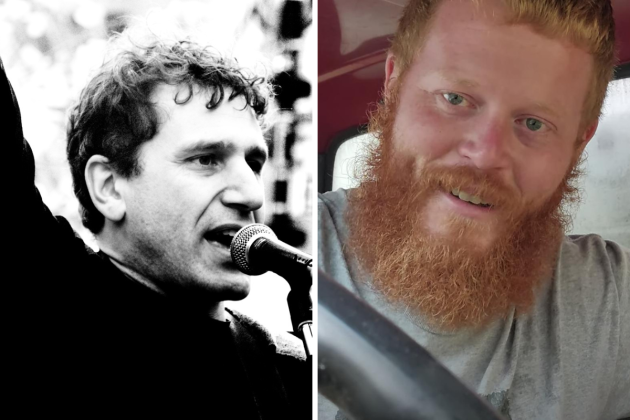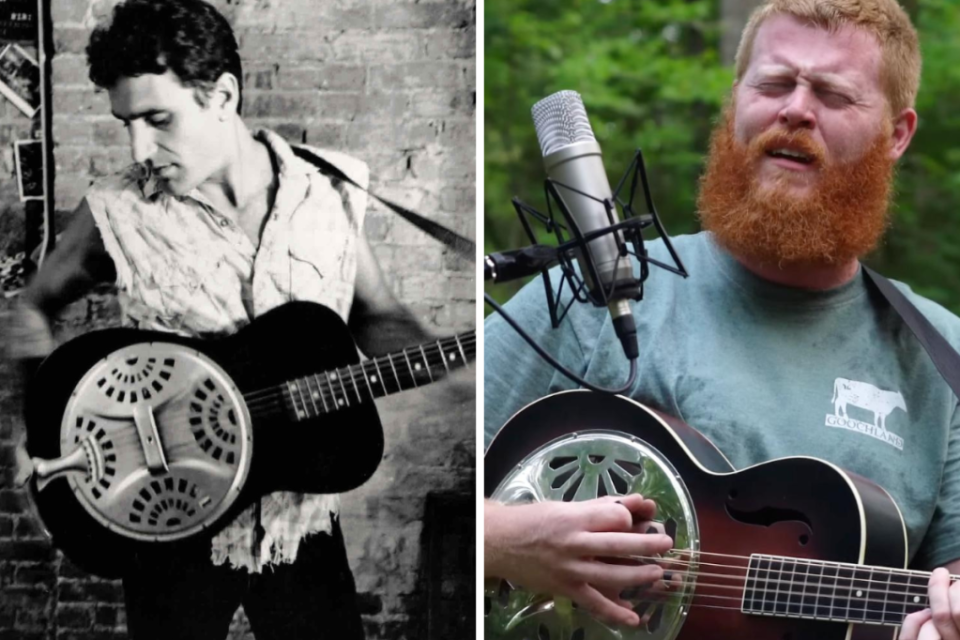A Singer-Activist’s Advice for ‘Rich Men North of Richmond’ Singer Oliver Anthony: ‘As Long as We Are Divided, We Will Fail’
- Oops!Something went wrong.Please try again later.
- Oops!Something went wrong.Please try again later.
- Oops!Something went wrong.Please try again later.
- Oops!Something went wrong.Please try again later.

Richmond-born singer-songwriter-activist Stephan Said had a viral hit political anthem 25 years ago. He has some advice for Oliver Anthony and thoughts about his No. 1 song “Rich Men North of Richmond.”
Over the past couple of weeks, friends (and strangers) who know my peculiar musical career history have asked my thoughts on Chris Lunsford, aka Oliver Anthony, and his song “Rich Men North of Richmond.”
More from Variety
Oliver Anthony Releases Music Video for New Single '90 Some Chevy,' Featuring Shots of a Handgun
Oliver Anthony's 'Rich Men North of Richmond' Is No. 1 Song in the U.S. for Second Week
Anthony is the first unknown, unsigned American artist to break into the charts and the national news with a viral people’s anthem — since I did the same thing 25 years ago. And, though our stories differ in important ways, they are also astonishingly similar.
In 1997 (performing as Stephan Smith), I self-released my anti-police brutality anthem, “The Ballad of Abner Louima.” In the days before the internet made “viral” a word, “release” meant hand-burning 100 CDs and individually mailing them to radio stations. Airplay for the song started on pirate and college stations, but within a week it had spread to national networks and programs including “The Howard Stern Show.”
Widespread press rolled in from the right-leaning New York Post to the New York Times, which wrote “Smith (Said) recalls Bob Dylan in his early days as a Woody Guthrie acolyte,” and “Suddenly, on the strength of the ballad, Mr. Smith has become something of a folk phenomenon…” reporting that folk-legend Pete Seeger had asked me to re-envision “We Shall Overcome” for my generation.
Cut to 2023: A Virginia boy with the same accent, from the same stomping grounds, accompanied only by a guitar, expresses the same urgency about the state of the world. Like me, he also refuses to be categorized as politically right or left, and he communicates with an unadorned, straight-talking style harkening back to Appalachian roots. Add to that a shared mistrust of the media and entertainment industries.

Anthony is even playing the same kind of guitar, a brown dobro, that I held in news features across the country, including our home state’s biggest paper, the Richmond Times Dispatch.
This is where the parallels get interesting. I was trying to ignite a movement for justice that would unite people across political lines and the world. The Oklahoma City Bombing, first Iraq war, Rodney King beating and first attempt on the World Trade Center had all recently happened. Just as Chris seems to feel today, it was clear to me then that our world was falling apart.
But “Rich Men North of Richmond,” with its click-baitable lines to which it arguably owes its virality, has excited the very divisiveness that Chris, in his own words, has since said he would prefer to transcend.
I suspect that this is where Chris and I probably agree:
Divisiveness is now the greatest crisis we face in this country as well as the world. As long as we are divided, we will fail to respond as one to all the mounting crises we face as a human race: rising inequality, climate change, pandemics, mass refugees, youth disillusionment, school shootings, drug epidemics, poverty and war.
However, no one — especially a Virginian — posits a line in the sand at Richmond against some “North” without knowing the prevailing inference will be the Confederacy.
This is an especially unfortunate association, given the death of Heather Heyer at a protest featuring white men wielding rebel flags a stone’s throw from Farmville in Charlottesville, and the protests over police brutality and Civil War statues in Richmond — broadcast globally — just a couple years ago.
I have walked down the roads Chris is on, both literally and figuratively.
When Chris was a boy, I was as likely to be writing a song in the doorstep where Amadou Diallo was shot in New York as I was to be in Farmville off Route 15 at the Mahan’s junkyard among the Joe Pye weed and timber rattlesnakes, snagging a big block 390 out of a ’64 Galaxy for the ‘62 T-bird I was driving.
Like Chris is now, I got invitations from TV shows, politicians and record labels. I signed with a premiere Americana/country label, with a top manager, booking agent and publicist, and did shows before tens of thousands of people with Bob Dylan, Dave Matthews and more.
But I wasn’t happy. I wanted out. Like most of my peers, I felt the world was going off a cliff while our world was becoming more divided when it needed to come together. In my efforts to reach across divides and genres to people of all colors and income brackets, I realized that the entertainment industry had become just as much a part of the problem as Washington.
The 1996 Telecommunications Act enabled near-monopolies in the media that made target-marketing’s segregating methods a matter of good business — it’s how they minimize risk and maximize profits. But that has slowly, invisibly eroded the fabric of our society.
The internet and social networks have since fed us that segregation on steroids. Sales-based algorithms no longer merely entrench divides, they create divergent realities between fellow citizens. It’s this algorithmic divisiveness that “Rich Men North of Richmond” owes both its success and failure.
If I could talk to Oliver Anthony, I’d say, “Keep writing.” I feel that his heart is in the right place and he cares about the world we’re making, the damage we’re wreaking.
Oliver, we need songs that help us understand each other across boundaries, whether we’re on a farm in Appalachia or in a welfare line on Chicago’s south side. But, most importantly, we will need to rebuild our connections to each other, going directly into our communities, schools, firehouses, town halls, churches, mosques and synagogues, not only from Harlem to the heartland, but from the U.S. to Africa, South America to the Middle East, Europe and Asia.
I will be in Farmville again soon and maybe we’ll get to make some music together that cuts across all these dividing lines when I’m there.
Stephan Said is the co-founder and host of Borderless (thisisborderless.com), a movement to lift the voices of people making a better world. He will soon be seen in Ate de Jong’s Americana music film, “Heart Strings.”
Best of Variety
Sign up for Variety’s Newsletter. For the latest news, follow us on Facebook, Twitter, and Instagram.

